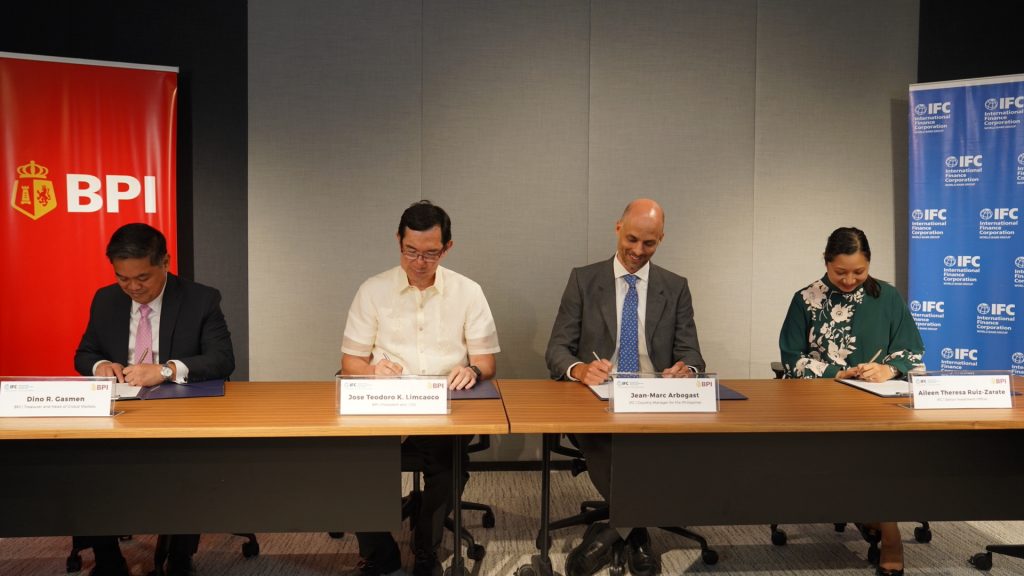
In an effort to grow climate finance in the Philippines, the International Finance Corporation (IFC), a member of the World Bank, has agreed to invest USD250 million in a green bond to be issued by Bank of the Philippine Islands (BPI), the second largest private bank in the country.
This is the biggest deal IFC has done with a financial institution in the Philippines.
Proceeds will be used to finance eligible green assets in the Philippines, including renewable energy, energy efficiency, green buildings, electric vehicles, and climate-smart agriculture projects, among others.
While most of the proceeds will be used for local projects, part could also be used to invest in bonds with underlying green assets overseas.
IFC has also agreed to help BPI build its capacity to assess the eligibility and impact of its climate projects.
IFC is the sole subscriber of the bond, which will be aligned with the International Capital Market Association’s Green Bond Principles.
As much as three quarters of the population of the Philippines is vulnerable to the impacts of natural hazards, the World Bank’s Country Climate Development Report estimates the economic damage caused by climate change in the country could reach up to 7.6 percent of gross domestic product (GDP) by 2030.
“As a bank known for its commitment to sustainable finance and climate change mitigation, we are delighted IFC has entrusted us with this significant investment,” BPI President and CEO TG Limcaoco said.
“This is our third green bond issuance, and we will draw on our successful track record to fund projects that will make a lasting difference in the communities in which we operate,” he added.
BPI first issued a green bond in 2018, which was more than four-times oversubscribed.
“IFC is pleased to continue its impactful partnership with BPI, a longtime client and partner in promoting climate finance in the Philippines,” IFC Country Manager for the Philippines Jean-Marc Arbogast said.
“Thematic bonds are a key pillar of our longstanding commitment to not only tackle climate change, but also to help deepen sustainable capital markets in the country,” he added.
According to the latest data from the Philippines’ Securities and Exchange Commission, there have been 28 sustainability bond issuances collectively valued at more than USD10 billion since the first green bond was issued in 2016.
This green bond issuance is aligned with IFC’s 30 by 30 Zero Program, which aims to help financial institutions mobilize private financing for more climate-related projects in the Philippines. The end goal is to help them grow their climate-related lending to 30 percent of their total portfolios with near zero coal exposure by 2030.
As part of the program, IFC will also work with regulators and conduct training and workshops with potential issuers to support more thematic bond issuances in the country.


